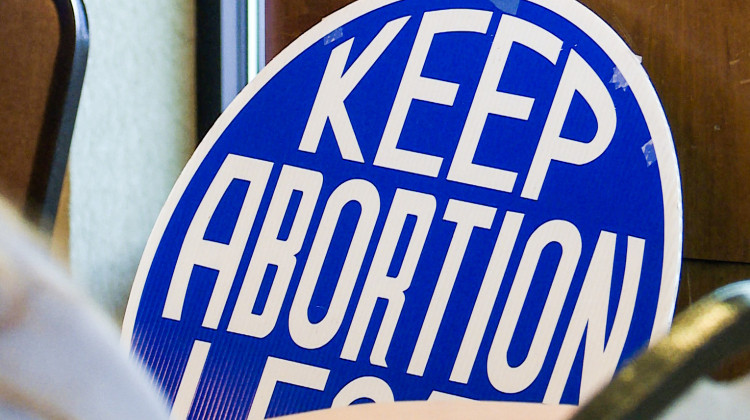Planned Parenthood plans to stop taking money from the federal Title X program. That has some health providers worried about the potential impact on rural and low-income Hoosiers.
HHS officials say organizations ultimately had to make a decision – comply and continue to receive federal funding or provide abortion services and lose federal dollars.
Planned Parenthood — one of the largest women’s healthcare providers in Indiana — decided not to comply with the new regulations.
The organization says it has served about 40 percent of patients, many of them African-American and Hispanic. Family planning funds cannot be used to pay for abortions.
Indiana Rural Health Association Executive Director, Don Kelso, says the decision will likely disproportionately affect at-risk communities. He says there could be unintended consequences also.
“Between 50 and 60 percent are born of mothers that are on Medicaid and if there truly does become fewer abortions in our state because of this then I would expect to be mothers and newborn babies on the state’s Medicaid rolls," he says.
The new HHS rules make it possible for faith-based organizations opposed to abortion to receive Title X grants.
Currently about 4 million women are served nationwide under the Title X program, which distributes $260 million in family planning grants to clinics.
Amy Hagstrom Miller is the CEO of Whole Woman’s Health Alliance, a national women’s healthcare provider with an office in South Bend. While her organization does not receive Title X funding, she worries about the impact it could have a number of at-risk communities across the state.
“These kinds of regulations, and these kinds of bans and this kind of funding, really disproportionately effects rural communities," Miller says. "It also disproportionately impacts young people and people of color.”
Alexis McGill Johnson, Planned Parenthood's acting president and CEO, said the organization's nationwide network of health centers would remain open and strive to make up for the loss of federal money. But she predicted that many low-income women who rely on Planned Parenthood services would "delay or go without" care.
"We will not be bullied into withholding abortion information from our patients," McGill Johnson said. "Our patients deserve to make their own health care decisions, not to be forced to have Donald Trump or Mike Pence make those decisions for them."
Enforcement of the new Title X rule marks a major victory for a key part of President Donald Trump's political base — religious conservatives opposed to abortion. They have been campaigning relentlessly to defund Planned Parenthood because — among its varied services — it is the largest abortion provider in the United States, and they viewed the Title X grants as an indirect subsidy.
In a statement, the Department of Health and Human Services said Planned Parenthood knew months ago about the new restrictions and suggested that the group could have chosen at that point to exit the program.
"Some grantees are now blaming the government for their own actions — having chosen to accept the grant while failing to comply with the regulations that accompany it — and they are abandoning their obligations to serve patients under the program," the department said.
It said it would strive to make sure patients are served.
A federal appeals court in San Francisco is weighing a lawsuit to overturn the rules, but so far the court has allowed the administration to go ahead with enforcement. Oral arguments are scheduled the week of Sept. 23. Several states and the American Medical Association have joined the suit as plaintiffs.
Abortion rights activists are also pressing Congress to overturn the rule, though it seems unlikely that the Republican-controlled Senate would take that step.
Monday was the deadline set by the government for program participants to submit statements that they intended to comply with the new rules, along with a plan. Enforcement will start Sept. 18.
In addition to the ban on abortion referrals by clinics, the rule's requirements include financial separation from facilities that provide abortions, designating abortion counseling as optional instead of standard practice, and limiting which staff members can discuss abortion with patients.
Clinics would have until next March to separate their office space and examination rooms from the physical facilities of providers that offer abortions.
The Associated Press contributed to this story.
 DONATE
DONATE











 Support WFYI. We can't do it without you.
Support WFYI. We can't do it without you.